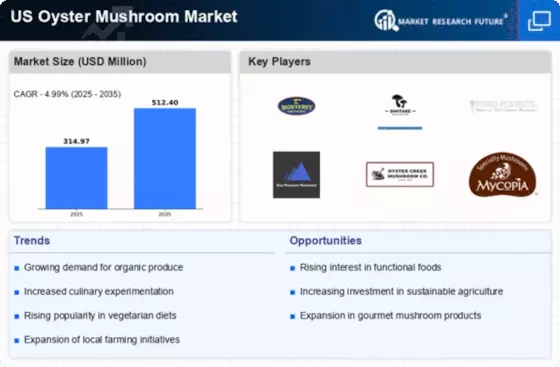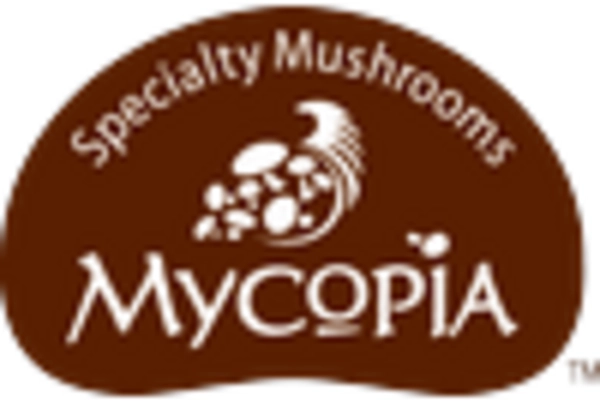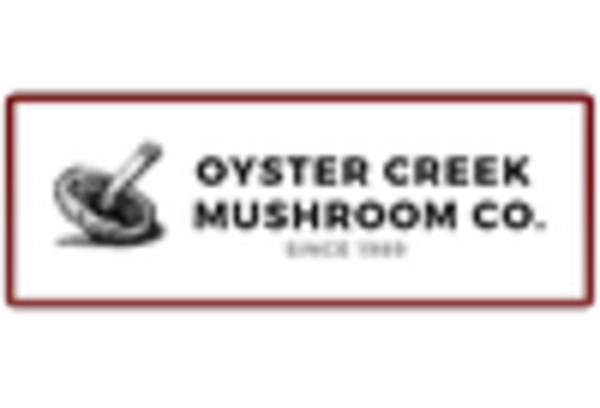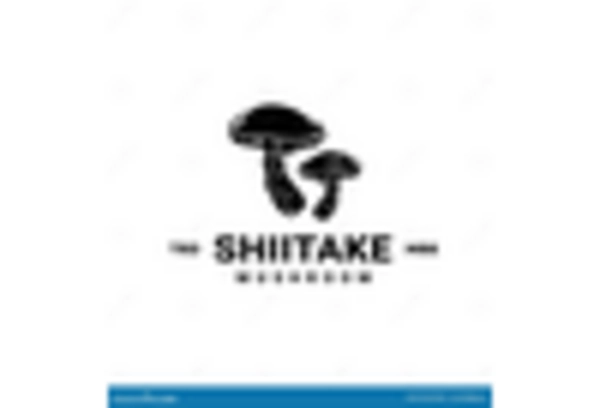The Oyster Mushroom Market in the US is characterized by a dynamic competitive landscape, driven by increasing consumer demand for plant-based foods and the growing recognition of the health benefits associated with mushrooms. Key players such as Monterey Mushrooms (US), Fungi Perfecti (US), and Mycopia Mushrooms (US) are strategically positioned to leverage these trends. Monterey Mushrooms (US) focuses on innovation in cultivation techniques, enhancing yield and quality, while Fungi Perfecti (US) emphasizes sustainability through organic farming practices. Mycopia Mushrooms (US) has carved a niche in gourmet mushrooms, appealing to high-end culinary markets. Collectively, these strategies foster a competitive environment that prioritizes quality, sustainability, and consumer engagement.
In terms of business tactics, companies are increasingly localizing manufacturing to reduce transportation costs and enhance freshness. Supply chain optimization remains a critical focus, as firms seek to streamline operations and improve efficiency. The market structure appears moderately fragmented, with several players competing for market share, yet the influence of major companies is palpable, as they set trends and standards that smaller entities often follow.
In December 2025, Monterey Mushrooms (US) announced the launch of a new line of organic oyster mushrooms, aimed at capturing the growing health-conscious consumer segment. This strategic move not only aligns with current consumer preferences for organic products but also positions the company to enhance its market share in a competitive landscape increasingly focused on health and sustainability. The introduction of this product line is likely to bolster brand loyalty and attract new customers.
In November 2025, Fungi Perfecti (US) expanded its distribution network by partnering with a major grocery chain, significantly increasing its market reach. This partnership is strategically important as it allows Fungi Perfecti (US) to tap into a broader consumer base, enhancing visibility and accessibility of its products. Such collaborations may also lead to increased sales volumes and brand recognition in a crowded market.
In October 2025, Mycopia Mushrooms (US) launched an innovative online platform that allows consumers to order directly from the farm, thereby enhancing customer engagement and streamlining the purchasing process. This digital transformation reflects a broader trend in the market, where companies are increasingly adopting technology to improve customer experience and operational efficiency. The move is likely to set a precedent for other players in the market, emphasizing the importance of direct-to-consumer sales channels.
As of January 2026, current competitive trends in the Oyster Mushroom Market are heavily influenced by digitalization, sustainability initiatives, and the integration of AI in production processes. Strategic alliances are becoming more prevalent, as companies recognize the value of collaboration in enhancing their market positions. Looking ahead, competitive differentiation is expected to evolve, shifting from traditional price-based competition to a focus on innovation, technological advancements, and supply chain reliability. This transition may redefine market dynamics, compelling companies to invest in research and development to stay ahead.


















